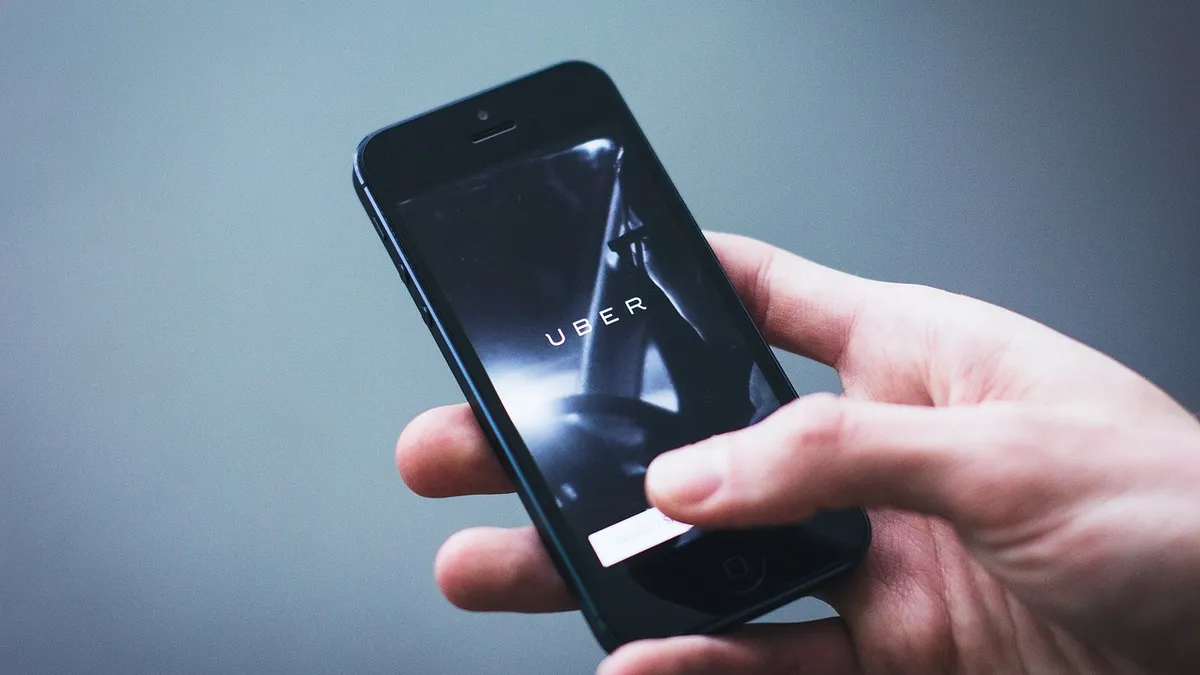Dive Brief:
- A study from Economic Development Research Group (EDRG) found that Uber paid $12.9 billion to its drivers and delivery partners last year, net from service fees incurred by the company.
- The study found that most drivers or partners (like drivers for Uber Eats delivery) are earning more money than they were before starting with Uber, and that roughly nine out of 10 are using Uber to supplement other sources of income. Nearly a quarter (23%) of Uber drivers were unemployed before starting with the company.
- EDRG also found that Uber contributed $17 billion in gross domestic product to the U.S. last year, and the net impact of of the company on the U.S. economy is $591 million annually.
Dive Insight:
An interesting section of the report shows how Uber is being used in cities in conjunction with other forms of transportation. The study found that 14% of trips were taken by riders who said they could not have accessed their destination without Uber, and 11.6% of trips are taken by out-of-town visitors.
Olivia van Nieuwenhuizen, a data scientist at Uber, wrote in a Medium post that the results made clear that "Uber is part of a dynamic ecosystem: Uber riders rely on many interconnected options."
One in 10 trips connected to a bus or rail line, according to a survey of riders, a number that does show a role in the existing transit framework, but may not be as overwhelming as some transit agencies may want to see. Cities have wanted to see companies like Uber and Lyft work to solve the "first mile, last mile" problem and supplement, rather than compete with transit (Lyft has notably integrated public transit in its app in some cities). The EDRG report notes that better app integration is helping to make Uber riders better connected to public transit, as are public trials where Uber is being offered as an alternative to parking.
The report paints a very positive picture of Uber’s relationship with drivers, even as there’s been more attention from governments into how Uber and Lyft pay and treat their employees. An MIT study of more than 1,000 ride-share employees found their pretax profit was $3.37 an hour and that three quarters of drivers made below minimum wage (the researchers are reviewing their data in response to criticism from Uber).
San Francisco in May subpoenaed the companies for driver pay and benefit information, part of a probe into whether the companies were properly complying with a state Supreme Court ruling over how companies should pay independent contractors. Seattle has also been weighing a rule raising the minimum rate for rides in order to secure a better wage for employees.











